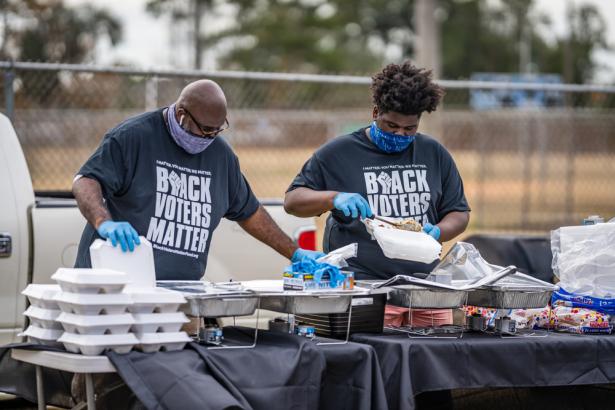I lead the Joint Center for Political and Economic Studies, America’s Black think tank. When we opened our doors in 1970, there were only 1,469 Black elected officials in office across the United States. Today, there are over 10,000.
These milestones are historic, yet they also compel us to confront the sad reality that African Americans are still far behind their white counterparts in terms of overall economic well-being and political representation.
This duality — celebrating progress while recognizing the challenges in front of us — defines the spirit of Black History Month for 2025.
While the growth of Black political leadership is encouraging, representation alone doesn’t guarantee systemic change. And today, even that progress in Black political representation is threatened.
Under the last administration, African Americans held 11 percent of the highest ranking, commissioned officer positions within the White House — nearly reaching our 14 percent share of the U.S. population.
The current administration, by contrast, has appointed only one Black cabinet nominee, returning our country to the poor Black representation of the 1980s. And following guidance from the White House, many federal agencies have now canceled their Black History Month celebrations.
But outside the White House, Black political representation has reached historic highs.
Today, we have one Black governor, Wes Moore of Maryland — only the third Black governor elected in U.S. history. We’ve set a new record with five Black U.S. Senators: Angela Alsobrooks (D-MD), Lisa Blunt Rochester (D-DE), Raphael Warnock (D-GA), Cory Booker (D-NJ), and Tim Scott (R-SC). The Congressional Black Caucus (CBC) now has 62 members — its largest membership yet.
At the local level, Black political leadership is flourishing with a record 143 Black mayors across the country. Black leaders are at the helm of New York, Los Angeles, Chicago, Houston, Philadelphia, and Atlanta. These leaders are shaping not only their own cities, but urban policy across the nation.
Economic progress has accompanied these political milestones. Black Americans have achieved record levels of economic well-being in recent years, including historically low unemployment rates, a median income of $56,490, and median household wealth of $44,900.
But while these figures are encouraging, they remain overshadowed by persistent racial disparities. White households, for instance, maintain a median wealth of $285,000, highlighting the country’s deep racial economic divide.
The African American tradition of struggle advances the entire nation. In that spirit, we must continue to build coalitions that address shared socio-economic challenges across racial and ethnic lines. Economic security, the need for a living wage, access to affordable housing, and moving communities out of asset poverty — these are the battles that our historic number of Black elected officials must continue to fight.
Recent attacks on diversity, equity, inclusion, and accessibility (DEIA) are another area demanding focus. We cannot allow the Trump administration’s witch hunt for those who’ve advocated opportunities for underrepresented communities to turn back the slow, gradual progress in Black political power.
The Joint Center was born from the Black freedom tradition — not from a desire for surface-level diversity, but from the need for true systemic change. As we navigate these challenges, we draw strength from this tradition and our remarkable progress.
The next two to four years present unique opportunities for collaboration and advancement. While congressional power remains fluid, with the Senate and especially the House narrowly divided, strategic coalition-building can help us address persistent disparities and create a more equitable future.
Let this Black History Month remind us that progress is possible, even in the face of persistent challenges. Together, we can honor the sacrifices of those who came before us and pave the way for a brighter future for generations to come.
Dedrick Asante-Muhammad is the President of the Joint Center for Political and Economic Studies and an associate fellow of the Institute for Policy Studies. This op-ed was distributed by OtherWords.org.
OtherWords is a free editorial service published by the Institute for Policy Studies. Each week, we publish a package of op-eds and columns, plus an original cartoon, and distribute them to readers, editors, and publishers through our website and newsletter. Each year, hundreds of newspapers and websites reaching millions of readers use this work.


Spread the word